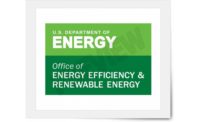DALLAS — Jacobs is part of a consortium selected by the Michigan Department of Transportation (MDOT) to develop and implement an inductive vehicle charging pilot — the first of its kind in the U.S. The project team will be led by Electreon, a provider of wireless charging solutions for electric vehicles (EVs). NextEnergy, a Detroit-based clean energy accelerator, will head up stakeholder and partner engagement. The pilot will also be supported by partners like Ford Motor Co. and DTE Energy — a Detroit-based diversified energy company involved in the development and management of energy-related businesses and services — among others.
As the engineering partner, Jacobs will provide project management and design services to successfully deliver this pilot project through to operation. The consortium will design and build a one-mile stretch of dynamic and stationary wireless EV charging technology in Detroit hosted by the Michigan Central mobility innovation district, which serves as an open platform for collaboration. The technology, developed by Electreon, will enable inductive charging by placing embedded coils under the road pavement along with semi-dynamic charging stations at end point terminals to charge the vehicles while stationary in a queuing or parking lane. The system supports charging of equipped EVs and addresses several shortcomings in electrification related to battery limitations, charging needs and vehicle asset utilization.
“As the world transitions to the future of electrified transportation, cities and communities are seeking and adopting green economic-centric models as part of the transformation,” said Ron Williams, people and places solutions Americas senior vice president and general manager, Jacobs. “This innovative pilot project aims to demonstrate efficient vehicle operability to prove the viability of wireless EV charging. Jacobs is committed to delivering decarbonization solutions to address the increasingly critical issue of climate change. This project is just one of the ways Jacobs and our partners are working together to create a more connected, sustainable world.”
Transportation accounts for approximately one quarter of all CO2emissions globally and in the U.S., it is the highest CO2emitting sector. Reducing global transportation sector emissions is a top priority for Jacobs, and thegreening of public and private vehiclesis a critical step leading to improved air quality and healthier cities. For more information, visitwww.jacobs.com.



